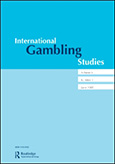 More results have been published from my study on gambling-related embezzlement and other harms from gambling in the workplace. This paper – the second in a series of three – focuses on the systemic character of gambling-driven embezzlement.
More results have been published from my study on gambling-related embezzlement and other harms from gambling in the workplace. This paper – the second in a series of three – focuses on the systemic character of gambling-driven embezzlement.
Abstract
People with severe gambling problems typically first spend all their available money on gambling and then resort to borrowing, selling personal property and other ways of procuring more money for gambling. Some problem gamblers commit economic crimes. This investigation examined gambling-related embezzlement in the workplace, an aspect of problem gambling that may severely harm the gambler, significant others and the employer. The methods used are the study of newspaper articles and qualitative interviews with 18 informants, including professionals in workplace security and drug-use prevention, therapists specializing in problem gambling treatment, counsellors from mutual support societies, and recovered problem gamblers who had embezzled. Gambling-related embezzlement often progresses in a characteristic sequence shaped by specific processes in which the gambler’s thoughts and emotions interact systemically with the monetary losses caused by participating in commercial gambling and the opportunity to embezzle money in the workplace. In this study, criminological theory of white collar crime usefully complemented psychological theories of problem gambling. It is concluded that a processual perspective, in addition to consideration of psychological and environmental factors, is valuable for understanding the progression to severe problem gambling.
– Binde, P. (2016). Gambling-related embezzlement in the workplace: A qualitative study. International gambling studies, 16(3): 391-407. Open access – free download.

